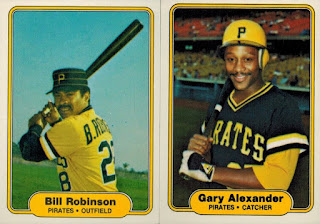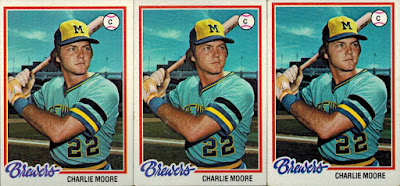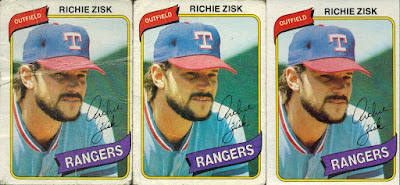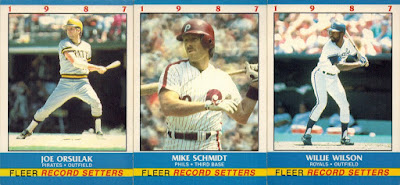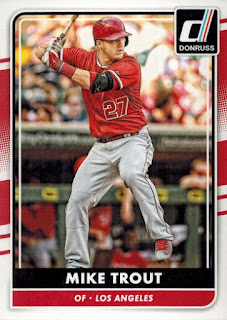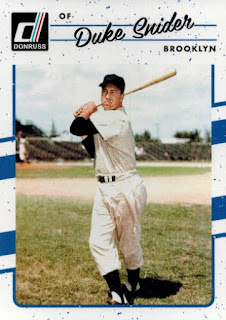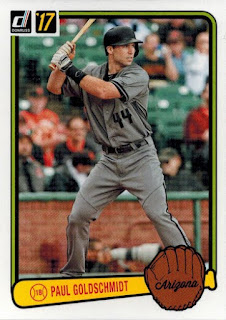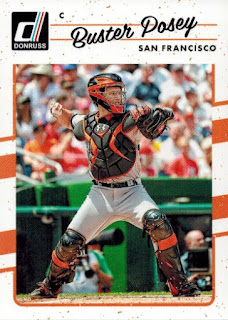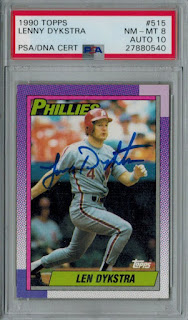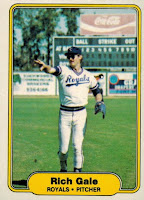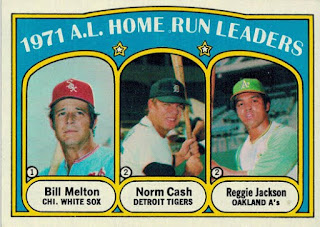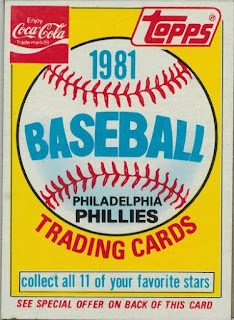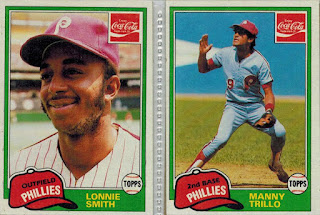Following up on yesterday's post on Burger King cards, I am highlighting today the 1980 Burger King Phillies set. This set had a big impact on me growing up -- I remember getting a bunch of these in 1980 despite being only 4 years old, and I remember the Phillies winning the World Series, at least vaguely. Many of these were legendary guys for the Phillies -- you have to understand that the Phillies existed 97 years without a championship, and 77 years if you count since the World Series started. These were the guys that did the impossible and ended that drought. Boone, Trillo, Bowa, Maddox, McGraw, Rose, Schmidt, and Carlton were all named to the Phillies Centennial Team in 1983.
The set is imperfect in commemorating that World Championship team, mainly because 1980 cards reflect the reality of 1979, and the 1979 Phillies had some differences. Some players are left out -- if you had a similar set in 1981, you would want to feature Bob Walk, for example, who was a reliable starter for the Phils as a rookie in 1980.
 |
| 1980 Burger King Phillies checklist card, and Dallas Green and Bob Boone. |
I already had a set of these in my collection, but I couldn't resist
ordering more from ebay recently. I got a box of 49 unopened packs (3
cards per pack) for about $30. I opened 15 packs before I got a
complete set, leaving me with 34 unopened. These are thin cello packs, and each pack has one player and the checklist visible. My unopened packs show 20 of the 22 players (missing Greg Gross and
Lonnie Smith). The new complete set is in great condition, whereas the condition of my old set is varied, with some of them being quite beat up.
 |
| 34 unopened packs of 1980 Burger King Phillies. |
While I had a complete set of the 22 cards, I didn't have the checklist, pictured here with "The King" of Burger King himself. I remember the checklist card clearly, though, from my childhood -- since you get one checklist per pack, we had several of them around when I was little. It's great to have it again, and since I opened 15 packs, I have 15 of them.
I won't comment on all of the players, but I am showing them all.
Dallas Green managed a few other teams over the years, but never had the same success as with the Phillies. I like to point out MLB figures who are Delawareans, and Dallas Green is one. His time with the Phillies got him the much-coveted honor of being in the Delaware Sports Hall of Fame.
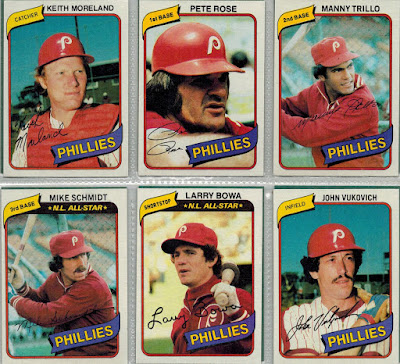 |
| Keith Moreland, Pete Rose, Manny Trillo, Mike Schmidt, Larry Bowa, and John Vukovich. |
What is there to say about Pete Rose? I didn't know in the 80s about the things he had done/would do that would disgrace him. All we knew back then was that no one played baseball harder. When the Phillies signed him, they had lost the playoffs for three years in a row, 1976-1978. They meant business, and with Rose added to the team, they won the 1980 World Series, played in a divisional series in 1981, and won the pennant in 1983.
Manny Trillo was a great second baseman. He was only with the Phillies from 1979 through 1982, but in those years he won three Gold Gloves and two Silver Sluggers. He was the NLCS MVP in 1980.
What is there to say about Mike Schmidt? He's the greatest. I sent one of my spare Schmidt cards from this set to PSA for grading.
As far as I can tell, John Vukovich isn't related to former Phillie George Vukovich, or to the pitcher Pete Vukovich. I always assumed they were brothers or something, but I guess not. John Vukovich became a coach, interim manager, and front-office executive for the Phillies later. He was a fixture with the team until his death from brain cancer.
 |
| Bake McBride, Garry Maddox, Greg Luzinski, Greg Gross, Del Unser, and Lonnie Smith. |
Bake McBride was the 1974 NL Rookie of the Year with the Cardinals. He had a lot of injuries over the years, but managed to produce some solid years for the Phillies.
I don't like to miss an opportunity to repeat Harry Kalas' line about Garry Maddox, "Two thirds of the earth is covered by water, the other one third is covered by Garry Maddox." Secretary of Defense, indeed. The Phillies were lucky to have him.
Greg Gross and Del Unser both seemed to specialize in pinch hitting. Unser tied the record for pinch home runs in consecutive at-bats with 3 in 1979. Gross is fifth on the all-time pinch hits list, with 143.
 |
| Steve Carlton, Larry Christenson, and Nino Espinosa. |
The set is in order by position; it starts with the manager, then catchers, first base, second base, third base, shortstop, infield, outfield, then starting pitchers, then relief pitchers. Within each category, it's alphabetical -- Boone then Moreland as catchers, for example. So, for starting pitchers, we have Steve Carlton, Larry Christenson, Nino Espinosa, Randy Lerch, and Dick Ruthven.
Even though the Phillies won the 1980 World Series and the NL East in 1976, 1977, and 1978, they really had an off year in 1979. The team finished 4th with a 84-78 record. Carlton, naturally, was the ace, and had an 18-10 record. Espinosa was 14-12, Lerch was 10-13, Ruthven was 7-5, and Christenson was 5-10. Not included in the set is Dickie Noles, who had 14 starts with a 3-4 record.
 |
| Randy Lerch, Dick Ruthven, and Tug McGraw. |
Tug McGraw was much beloved in Philadelphia, as a result of his time as a closer with the Phillies from 1975-1984. McGraw also was a fixture in Philadelphia, like Vukovich, until McGraw also died of brain cancer.
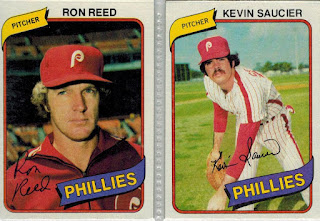 |
| Ron Reed and Kevin Saucier. |
The last two cards are of Ron Reed and Kevin Saucier. Reed pitched from 1966 through 1984, both starting and relieving, with a record of 146-140, an ERA of 3.46, and 103 saves. Reed was a two-sport guy, and also played two seasons in the NBA with the Pistons, playing in 119 games from 1965-1967, averaging 8.0 points per game. Saucier was in the majors 1978-1982, retiring when he had control problems, and then became a scout.

